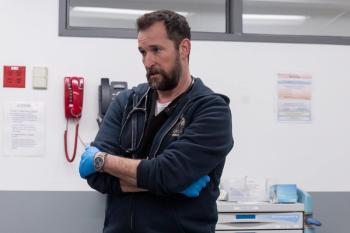
Dozens of medical groups denounce CDC’s new statements on vaccines and autism
They are pushing back after Health Secretary Robert F. Kennedy Jr. changed its guidance, the latest in a host of controversies over federal vaccine policies this year.
More than 60 medical organizations are speaking out to counter the Centers for Disease Control and Prevention’s new guidance on vaccines and autism.
The groups have come forward after the CDC
Health & Human Services Secretary Robert F. Kennedy Jr.
The American Academy of Pediatrics, the American Medical Association, and dozens of other medical groups signed onto
“Medical researchers across the globe have spent more than 25 years thoroughly studying this claim. All have come to the same conclusion: Vaccines are not linked to autism,” the groups said.
The groups said suggestions of possible links to vaccines and autism stoke unnecessary fears in Americans, and also don’t do anything to support or improve the lives of those with autism.
Susan J. Kressly, president of the American Academy of Pediatrics, said
“The conclusion is clear and unambiguous: There’s no link between vaccines and autism,” Kressly said. “Anyone repeating this harmful myth is misinformed or intentionally trying to mislead parents. We call on the CDC to stop wasting government resources to amplify false claims that sow doubt in one of the best tools we have to keep children healthy and thriving: routine immunizations.”
The Infectious Disease Society of America issued
“This change is not driven by science but by politics and will only serve to increase mistrust in science and medicine,” the groups said last week.
Dr. Tom Frieden, a former CDC director in President Barack Obama’s administration, called the CDC’s change in guidance “a dangerous and unprecedented departure from the CDC’s longstanding commitment to communicating evidence-based public health information.”
“Sowing distrust in vaccines puts the lives of American children at risk,” he wrote in a
Sen. Bill Cassidy, R-Louisiana, a physician and the chairman of the Senate Health Committee, pushed back against the CDC language but didn’t specifically criticize Kennedy for the revised guidance on the CDC website. During an interview Sunday with CNN’s Jake Tapper, Cassidy implored Americans to get vaccinated.
“Vaccines are safe,” Cassidy said on CNN. “As has been pointed out, it's actually not disputed. It's actually quite well proven that vaccines are not associated with autism. There's a fringe out there that thinks so, but they're quite a fringe. President Trump agrees that vaccines are safe.”
Cassidy
Kennedy, who has long raised questions and doubts about the safety of vaccines, has angered doctors and public health leaders over a series of changes in vaccine policies.
Under Kennedy, the government has said COVID-19 vaccines aren’t recommended for healthy adults. He has also canceled
Dr. Paul Offit, director of the Vaccine Education Center at Children’s Hospital of Philadelphia, said in
“He keeps crossing these lines that Senator Cassidy has drawn,” Offit said. “And so Senator Cassidy could play a role here. I mean, who's going to stand up for children in this country, if not Congress, and ask President Trump to have RFK Jr. please step down from this role.”
Health systems and physicians say





























































































